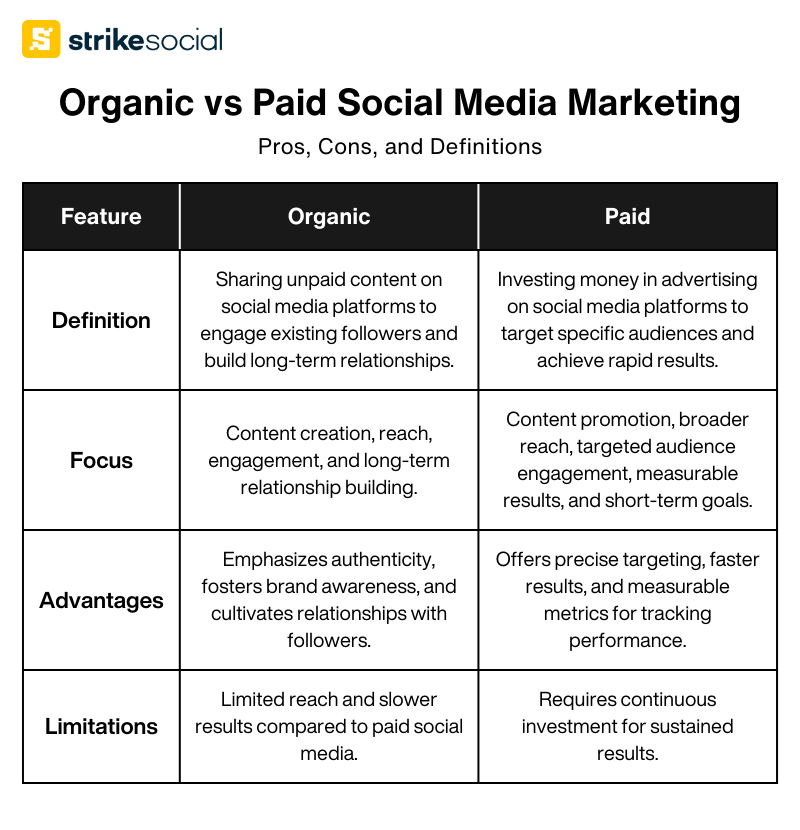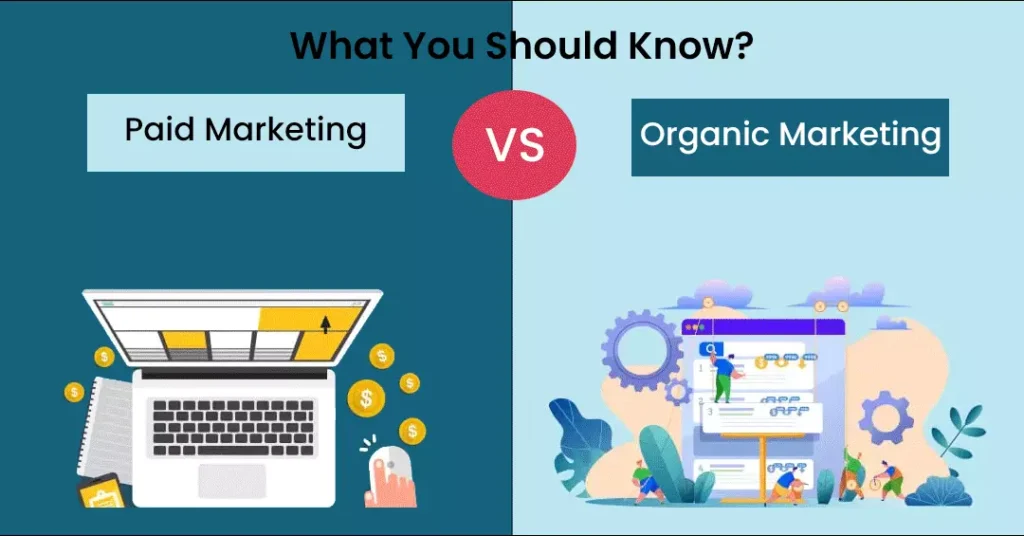Marketing is important for every business. Two main types of marketing are paid media and organic marketing. Let’s explore both. This will help you choose the best strategy for your business.

Credit: strikesocial.com
What is Paid Media?
Paid media means paying for advertising space. You can pay for ads on TV, radio, or online. This helps you reach many people quickly.
Examples Of Paid Media
- Google Ads: You pay to show your ads on Google.
- Social Media Ads: You pay for ads on platforms like Facebook or Instagram.
- Banner Ads: You pay for ads on websites.
- TV and Radio Ads: You pay to air your ads on TV or radio.
Benefits Of Paid Media
Paid media has many benefits. Here are some:
| Benefit | Explanation |
|---|---|
| Quick Results | Paid ads can give you quick exposure. |
| Targeted Audience | You can choose who sees your ads. |
| Measurable Results | You can track how well your ads perform. |
What is Organic Marketing?
Organic marketing is different. It means getting attention without paying for ads. This can take more time but can be very effective.
Examples Of Organic Marketing
- SEO (Search Engine Optimization): Improving your website to rank higher in search results.
- Content Marketing: Creating valuable content like blogs or videos.
- Social Media Posts: Sharing interesting posts on social media without paying.
- Email Marketing: Sending helpful emails to your customers.
Benefits Of Organic Marketing
Organic marketing also has many benefits. Here are some:
| Benefit | Explanation |
|---|---|
| Cost-Effective | Organic marketing can be cheaper than paid ads. |
| Builds Trust | People trust organic content more than ads. |
| Long-Term Results | Organic efforts can keep bringing results over time. |
Comparing Paid Media and Organic Marketing
Both paid media and organic marketing have their pros and cons. Let’s compare them side by side.
| Factor | Paid Media | Organic Marketing |
|---|---|---|
| Cost | High | Low |
| Speed | Fast | Slow |
| Trust | Lower | Higher |
| Longevity | Short-Term | Long-Term |
| Targeting | Precise | Broad |
Which Should You Choose?
Choosing between paid media and organic marketing depends on your goals and budget. Here are some tips to help you decide:
When To Use Paid Media
Consider paid media if:
- You need quick results.
- You have a budget for advertising.
- You want to reach a specific audience.
When To Use Organic Marketing
Consider organic marketing if:
- You have a limited budget.
- You want to build long-term trust.
- You are willing to wait for results.

Credit: www.semrush.com
Combining Both Strategies
You don’t have to choose just one. Combining paid media and organic marketing can be very effective. Here’s how:
How To Combine Paid And Organic Strategies
- Use paid ads to get quick exposure while building your organic presence.
- Create valuable content and promote it with paid ads.
- Use data from paid ads to improve your organic strategies.
- Build trust with organic content and boost it with paid promotions.
Benefits Of Combining Strategies
Combining both strategies can give you the best of both worlds. Here are some benefits:
| Benefit | Explanation |
|---|---|
| Balanced Cost | Combining can make your overall cost lower. |
| Better Reach | Reach more people by using both methods. |
| Improved Trust | Organic content builds trust, paid ads provide exposure. |
| Faster Results | Paid ads give quick results, organic provides longevity. |
Frequently Asked Questions
What Is Paid Media Marketing?
Paid media marketing involves paying for ads to promote your content.
What Is Organic Marketing?
Organic marketing uses free methods like SEO to attract visitors naturally.
How Does Paid Media Work?
Paid media works by purchasing ad space on platforms like Google or Facebook.
How Does Organic Marketing Work?
Organic marketing works by creating valuable content that ranks well in search engines.
Conclusion
Both paid media and organic marketing are useful. They have different strengths. The best strategy depends on your goals and budget. You can also combine both for better results. Understanding these differences will help you make smarter marketing decisions.

